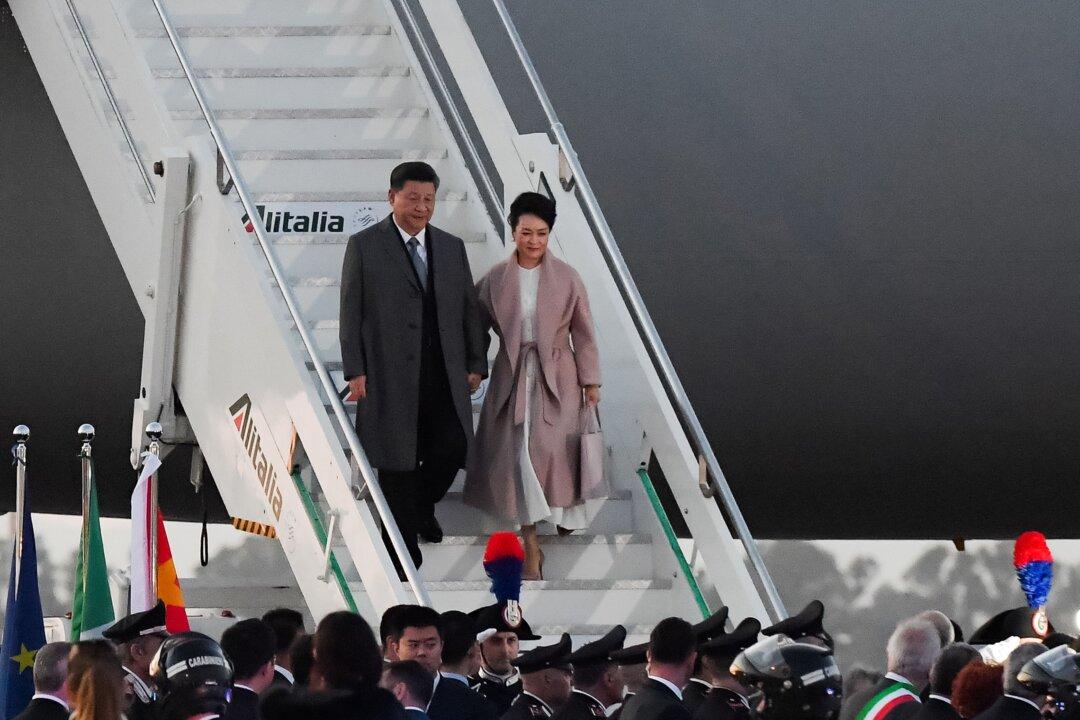Chinese leader Xi Jinping arrived in Rome on March 21, beginning a three-day visit. In a move that worries the United States and its allies, Xi is set to sign an accord to make Italy the first major democracy to join China’s massive One Belt, One Road initiative.
Italy, which seeks new export deals to boost its stalled economy, will become the first major industrialized nation in the Group of Seven to join the multi-billion-dollar project, which is designed to widen Beijing’s economic and geopolitical reach.





